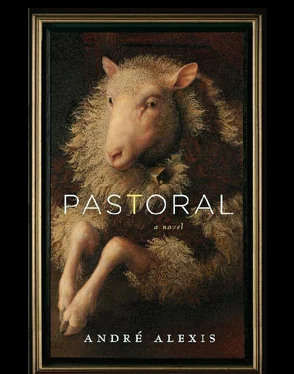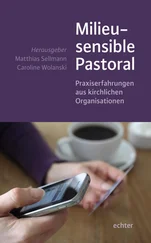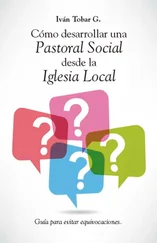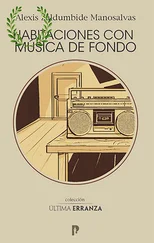Down the dusty road together
Homeward pass the hurrying sheep
Stupid with the summer weather
Too much grass and too much sleep
I, their shepherd, sing to thee
That summer is a joy to me …
It was a deeply touching moment for Elizabeth as well as for her aunt, a moment of complete belonging, at the edge of the separation that would come if she married Robbie. It was also to be the only moment of unselfconscious intimacy on her wedding day. Walking, just after dawn, with her aunt and uncle, was the beginning of what later seemed a hallucination that lasted until the sun went down and the day ended.
The wedding was set for eleven o’clock. By nine, home was like a madhouse. Loud voices were calling for things, children cried, and there was the occasional sound of something falling or breaking. All of this was part of a cheerful noise: the cries, the shouts, the broken glass. One of her uncles passed by her room singing:
Here comes the bride, with the idiot by her side
Another sang ‘Bringing in the Sheaves’:
Sowing in the sunshine, sowing in the shadows
Fearing neither cloud nor winter’s chilling breeze …
Someone was trying to quell the singing until everyone had gotten dressed and ready. Elizabeth herself was sitting in a chair in her bra and panties while her cousin Lisa helped her put on makeup. At times, it felt as if everything were happening to her or around her, but, in fact, she was an excited participant, asking for this and that, answering questions, even laughing at times. She celebrated with her cousins and reassured her aunt Anne that everything would be all right. Somewhere inside her she was happy, not about marrying Robbie but about the fact of her family: her relatives as well as her best friends (her bridesmaids), who had come early and were now telling her how beautiful she looked, how beautiful her dress looked, how happy they were.
Somewhere inside herself, Elizabeth was pleased, but she stood slightly apart from her own happiness. At the rehearsal, the wedding had seemed an abstraction or a distant ideal. On this day, the day it should all have felt real, the wedding was still distant and strange and she felt like an actor, not a true participant. She assumed this distance from herself was the result of the doubts she had about marrying Robbie, but there was something else: most of the significant moments in her life were really significant only long after they had happened. Sometime from now, whether she married Robbie or not, this day would be meaningful, she knew it.
The day itself was made for a wedding. The sun was a yellow disk. There were great, fluffy white clouds that looked as though they had been hung with care in the sky. From time to time, a breeze blew, bringing with it the smell of dust and the feel of autumn. It was warm, but it was not so warm that one felt uncomfortable in one’s special clothes. Footsteps sounded like percussion precisely, rightly hit. And then, as the limousine her uncle John had hired drove toward Barrow, the countryside that Elizabeth knew intimately watched her as she went by. All was still and bright and much as it would have been in a dream of Barrow.
At eleven o’clock, Elizabeth, her bridesmaids and her uncle John, who was to give her away, stood at the entrance to the church, waiting for their signal to enter. Elizabeth heard the service through the thick doors as if it were mumbled. She was aware of the tension around her. She held on to the train of her dress, the material feeling stiff enough to shatter. She was aware of her uncle’s cologne. She was aware of the grain of the wood of the door to the church. One particular knot was oddly precise: perfect circles in perfect circles in perfect circles.
And then, in an instant, time was up. The tall door opened, the beginning of the Allegretto from Beethoven’s Sixth Symphony began, and Elizabeth walked down the aisle of the church. The church was full. There seemed not a space left on a pew. The faces of the people before her were indistinct. That is, although she recognized everyone, she was not always sure who was who. There were just too many for her mind to take in. Here and there a detail stuck out: John Harrington’s tie was crooked; Betsy Robertson, who had been her homeroom teacher, was wiping her tears with a blue handkerchief; George Bigland was wearing a white turtleneck. This mass of people leaning to get a better look at her, this was her home. It was to these people she belonged and with whom she felt kinship. The church, St. Mary’s, though it was tall and its white painted walls went up and up, felt full to bursting as it held her world.
To one side of the church, the stained-glass windows were especially vivid. Elizabeth noticed them, as if for the first time. She took them in, in their entirety, in the momentary glance she gave them. Abbo of Fleury had a hand raised up to protect himself against a group of men who had poles and torches raised above their heads, the angry mob with terrifying expressions on their faces. Alexis of Rome was solitary, his hand held out for alms while, behind him, the Coliseum stood on a hill. Elizabeth looked up toward the altar and saw Robbie standing there, smiling, Phil Bigland, his best man, stood beside him. And she knew, the instant she saw his face, that she did not love Robert Myers. She had loved him, perhaps as recently as moments ago, but she did not love him now and knew it for sure. The girl she had been, the one who had loved a boy named Robbie Myers, had finally died, somewhere in transit between home and church. The woman she was did not feel horror or sadness or, even, indifference. She liked Robert still. He was amusing. He was good for her, in that he sometimes kept her from her own worst thoughts, but one was supposed to marry one’s beloved and Robert Myers was not her beloved.
As she approached, she imagined he would see her change of heart in her eyes. They stood, as Father Pennant gave a short sermon on marriage and passages from the Bible were read. Before she knew it, it was time for the vows.
— Dearly beloved, said Father Pennant, we are gathered together here in the presence of God and in the face of this company to join together this man and this woman in holy matrimony, a sacrament held honourable amongst all men and women and so not by any to be entered into unadvisedly or lightly, but reverently, discreetly, advisedly and solemnly.
While wondering which of these adverbs she could commit to — ‘discreetly’ being the only one with a real chance — her mind drifted and she missed Father Pennant’s words, missed being given away by her uncle, and only came around when Robbie took her hand and looked her in the eyes — evidently unaware that she no longer loved him.
— Do you, said Father Pennant, Robert Myers, take Elizabeth Denny to be your wife? Will you love her, comfort her, honour and keep her, in sickness and in health, for richer, for poorer, for better or worse, forsaking all others as long as you both shall live?
— I will, said Robert.
And then, for an instant, time stopped for Elizabeth. She looked, for what seemed hours, into the eyes of Robert Myers. She studied him. She had a memory of them making love for the first time, when they were fourteen. How certain she had been that she loved him and wanted to marry no one else! There were no such feelings now. Not a shred of confidence remained.
Father Pennant finished his part of her vow.
— … forsaking all others as long as you both shall live?
Elizabeth hesitated and time stretched out. She could not find the right road within her. But then, the thing she was waiting for came: a vision of Barrow, Barrow seen from the air, its houses and farms interlocking. Barrow was hers, its mind her mind. And Robert was part of it all, a part she knew, a part that could not hurt her anymore, because she did not love him. She was immune to his lunacy. The important thing — the only thing — was that she wanted to begin her life, here, in this place. So, although she did not love the man, Elizabeth said
Читать дальше












